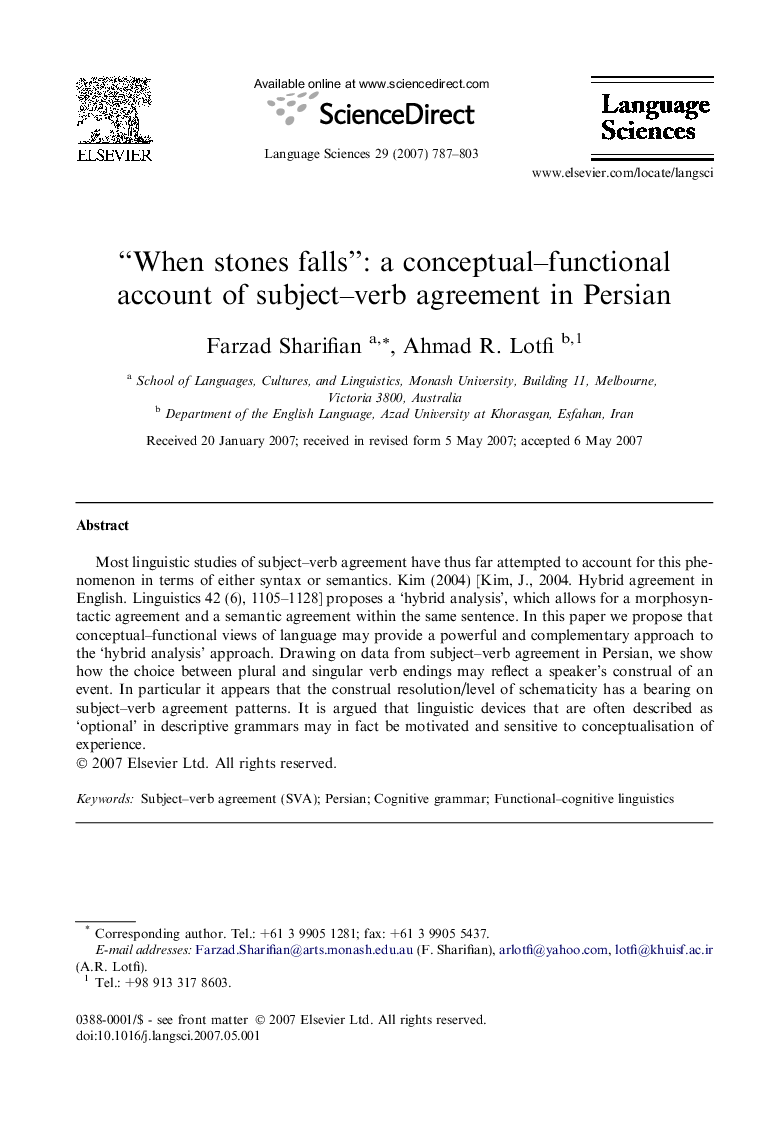| Article ID | Journal | Published Year | Pages | File Type |
|---|---|---|---|---|
| 1103715 | Language Sciences | 2007 | 17 Pages |
Abstract
Most linguistic studies of subject-verb agreement have thus far attempted to account for this phenomenon in terms of either syntax or semantics. Kim (2004) [Kim, J., 2004. Hybrid agreement in English. Linguistics 42 (6), 1105-1128] proposes a 'hybrid analysis', which allows for a morphosyntactic agreement and a semantic agreement within the same sentence. In this paper we propose that conceptual-functional views of language may provide a powerful and complementary approach to the 'hybrid analysis' approach. Drawing on data from subject-verb agreement in Persian, we show how the choice between plural and singular verb endings may reflect a speaker's construal of an event. In particular it appears that the construal resolution/level of schematicity has a bearing on subject-verb agreement patterns. It is argued that linguistic devices that are often described as 'optional' in descriptive grammars may in fact be motivated and sensitive to conceptualisation of experience.
Keywords
Related Topics
Social Sciences and Humanities
Arts and Humanities
Language and Linguistics
Authors
Farzad Sharifian, Ahmad R. Lotfi,
